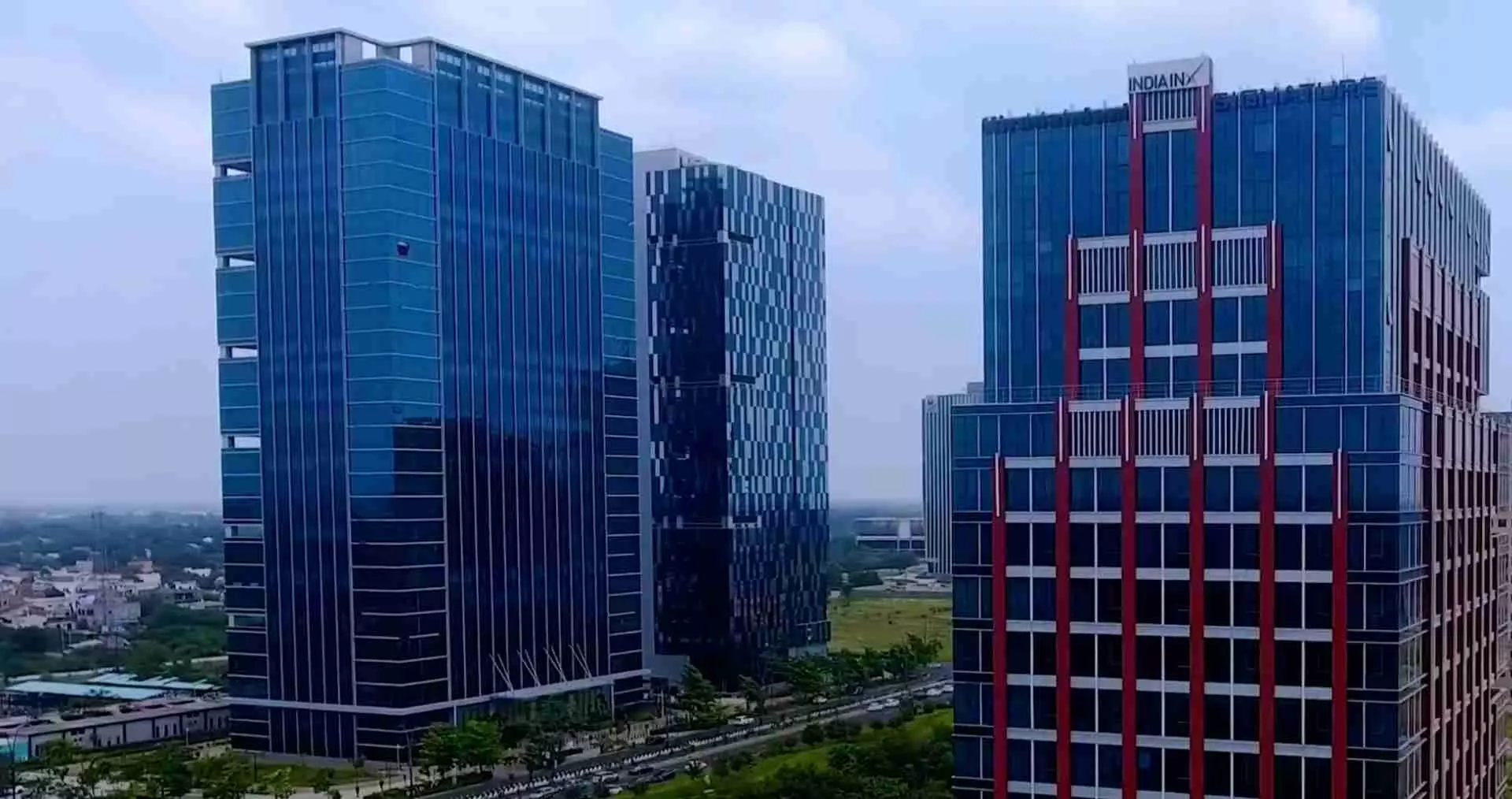
Budget: GIFT City gets IFSC incentives; no major sops for chipmakers
Emphasising the key role of IFSC, FM proposes measures including tax exemptions to attract global investors to set shop in GIFT City

The Union Budget 2025- 26 has got mixed response from Gujarat. While the announcement of major incentives for Gujarat International Finance Tec-City, also called GIFT City, had brought in hope for the fintech hub that has been struggling since its inception, lack of big announcements has left the semiconductor industry of the state worried.
GIFT City announcements
As Finance Minister Nirmala Sitharaman laid out the budget before Parliament, she announced special measures for funds, exchange-traded funds (ETFs) and retail schemes eligible for free of tax relocation to GIFT City.
Watch | Union Budget 2025: MSMEs recognised, but are they truly empowered?
Addressing a long-pending demand for the GIFT City International Financial Services Centre (IFSC), the government proposed to extend the existing relocation regime to even ETFs and retail schemes willing to move from off-shore locations such as Singapore and Mauritius to the GIFT City. The amendment will take effect from April 1, 2026, and shall apply in to the assessment year 2026-27 as well.
Additionally, the budget has also introduced benefits for ship-leasing units by extending capital gains tax relief under Section 10(4H) for non-residents and dividend tax exemptions under Section 10(34B) that will now apply on dividends paid by ship-leasing companies in IFSC to other IFSC units engaged in ship leasing and reducing tax burdens on these financial transactions.
Tax exemptions for FPIs
Adding to that, advances and loans between group entities, where one entity is set up in GIFT City IFSC, shall not be classified as dividends, ensuring a more streamlined financial structure for global companies that would come to GIFT IFSC. Tax exemptions have also been proposed for investors with foreign portfolios (FPIs).
“This is a very necessary move to attract relocation of more off-shore funds to IFSC, GIFT City. The budget gives a boost to the non-resident investors using GIFT City, that we have been hoping for. Earlier, any income earned by NRI via derivative trades or participatory notes was exempted from tax. Through Budget 2025-26, the government has extended this benefit to the NRIs who are investing through a foreign portfolio investor (FPI) based out of GIFT City,” said Jaiman Patel, Tax Partner, Financial Services, EY India.
Also read | MSMEs’ day out: Budget push aimed as much at jobs as at pushing sector
“By reducing operational costs for setting up businesses in GIFT City IFSC, the budget has ensured that the fintech hub is at par against established global financial centres such as Singapore and Dubai. With these new incentives, we hope that the GIFT City will attract more foreign investment reinforcing Gujarat’s impact in the global financial ecosystem,” he added.
‘Soft landing of foreign investors’
Noticeably, IFSC was established under the International Financial Services Centres Authority (IFSCA), a national level financial regulator four years ago. The IFSC, which is a part of GIFT City, is being headed IAS K Rajaraman, chairman of IFSCA since 2024.
“To put it simply, what we want to do is be a platform for foreign investors to land in India in a very soft manner. That is the whole idea. Soft manner is actually a careful way of describing the many challenges global banks, insurers and funds face while putting capital to work in a country with partially open capital account,” K Rajaraman, told The Federal.
“Unlike the international financial hubs, India imposes capital controls and has a myriad tax structure. Although both of these have been eased for GIFT City in the current budget and the Budget-2024, we are still long way from transforming the IFSC region into a true international financial hub compete against those in Singapore and Dubai,” he said.
Semiconductor industry worried
The semiconductor industry of Gujarat has been left worried as no major incentives were announced for the sector in Budget 2025.
The sector was seeking announcements on the line of India Semiconductor Mission 2.0, a separate production-linked incentives (PLI) scheme to help with the establishment cost among others.
Also read: Why almost 5,000 Gujarat MSMEs have closed down in less than 5 years
The industry stakeholders hold that the budget includes indirect benefits for various sectors related to the semiconductor industry but key demands related to manufacturing and expansion have not been fully addressed.
“The budget does not provide clarity on whether India Semiconductor Mission 2.0 will provide incentives beyond the 10-billion mark. It also did not introduce major extension in the PLI scheme for manufacturing expansion. These two were the immediate concerns and demands of the sector,” said Pankaj Yadav, associate professor at Pandit Deendayal Energy University and founder of Semiconductor Analysis and Testing Solutions.
‘No major push for MSMEs’
“The Budget also doesn’t help the MSMEs that have shown interest in diverting into the new sector. There was no announcement for any incentives in research and development for the sector that would go a long way in attracting the MSMEs. Despite the push from the government, so far the sector has seen only big players,” he added.
Also read | Budget: Sitharaman juggles I-T relief, economic growth with fiscal prudence
Noticeably, Sitharaman announced about Rs 26,026 crore, 48 per cent more than the fund allotted in Budget 2024, for the Ministry of Electronics and Information Technology that responsible for semiconductor industry.
No specific announcements were, however, made for the semiconductor sector.

